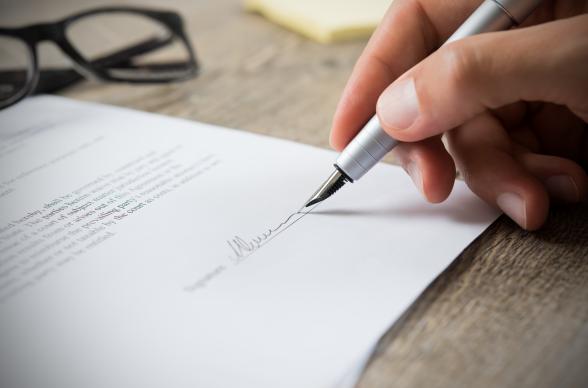What is defamation?
The term ‘defamation’ describes a statement that causes harm to the character of the person or organisation it concerns. Importantly, such statements can cause a business or individual to start legal proceedings.
Defamation can often be confused with libel and slander. In fact, these are both types of defamation and fall under this umbrella term.
It is important for small business owners to understand what defamation, or defamation of character, is – as well as the benefits of taking out professional indemnity cover.
Online quote in 5 minutes
Get a quote
What are the differences between defamation, libel and slander?
Defamation, libel and slander are important terms to be aware of, but their meanings often get mistaken. As a small business owner, sole trader or freelance individual, knowing the difference can be vital. We’ve defined defamation above, but what about libel and slander?
What is libel?
Libel specifically describes a defamatory statement that has been written down or recorded. This could be in a letter, email, social media post or text message, for instance.
What is slander?
The term slander is defined as a defamatory spoken statement. This could be made in a speech or even a conversation between two people.
Opinion or fact?
When dealing with claims of defamation, it’s also important to distinguish between a fact and an opinion. Statements of fact and opinion can both defame someone. Whereas facts must (usually) be proven to be true in order to defend a claim for defamation, opinions must be honestly held.
Defamation in the workplace
While high-profile libel or slander cases often make the news, defamation isn’t just a problem reserved for celebrities – it could become a very real issue for your business.
Defamation in the working environment can come from something as slight as an employee sharing a joke about a client via email or re-tweeting a piece of gossip. For the individuals and organisations it affects, defamation can result in distress and income loss.
There are also many instances in which defamation in the workplace could occur. For instance, a surprise meeting may prompt an employee to circulate emails which falsely claim this was held to discuss misconduct, defaming the individuals involved.
As a business owner, you not only have your reputation to protect, but also the financial vitality of your company. Even if a court case finds you to have done nothing wrong, the financial implications of defamation claims can be damaging – especially to small businesses and sole traders. The cost of covering your legal fees could force you to make cuts or even halt operations entirely.
Professional indemnity cover may be used to protect a business from defamation claims by assisting with legal fees and damage pay-outs. Read our FAQ guide to professional indemnity insurance to learn more about this type of cover.
How to prevent a defamation claim
Here are some tips on how to manage communications to lessen your risk of facing accusations of libel or slander:
- Avoid saying anything in an email or on social media that you wouldn’t want to see repeated on the front of a national newspaper or website
- It sounds obvious, but don’t make anything up about your clients, competitors or anyone else
- Even if you know something is true, avoid saying it if it’s likely to cause offence
- If you’re creating content, always check the facts and where necessary, include sources
- Don’t assume statements published by other people or organisations are true
- Be careful about repeating allegations you’ve heard or read. Even resharing a potentially defamatory tweet could put you at risk of being sued
- Have a clear social media policy in place and make sure all staff have been trained
Tell us about your business – we’ll build your business insurance quote and help you explore any other insurance needs.
Start my quoteRelated guides & FAQs
Other FAQs to consider
Disclaimer:
Our FAQ pages provide general information and background around the topic covered. FAQ pages are reviewed and monitored periodically by our insurance experts. But the content is not intended to be read as advice and any material is for general information purposes only. If you would like advice for any content, please seek professional assistance.


